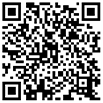Effects of Nuclear Matter on Messon Masses
- Received Date: 2003-08-05
- Accepted Date: 1900-01-01
- Available Online: 2004-04-05
Abstract: A density dependent relativistic mean field theory is used to investigate the effect of nuclear matter on σ, ω, ρ and π meson masses. The obtained results have been compared with those given by the linear Walecka model, a nonlinear Walecka model with the parameter set TM1, and the TW model. It has been shown that the overall trends predicted by the different models are quite similar. The effective meson masses decrease with the increasing of nuclear matter density in the lower density region, while the effective σ, π meson masses begin to increase with the density of nuclear matter, and the decreasing behaviors for the effective ω, ρ meson masses tend to become slower in the higher density region. The influence of asymmetric parameter α on the effective meson mass is considerably small, moreover, the nonlinear self-interaction terms in the parameter set TM1 and the many-body coupling (σπ)2 are important to the effective π meson mass.





 Abstract
Abstract HTML
HTML Reference
Reference Related
Related PDF
PDF













 DownLoad:
DownLoad: